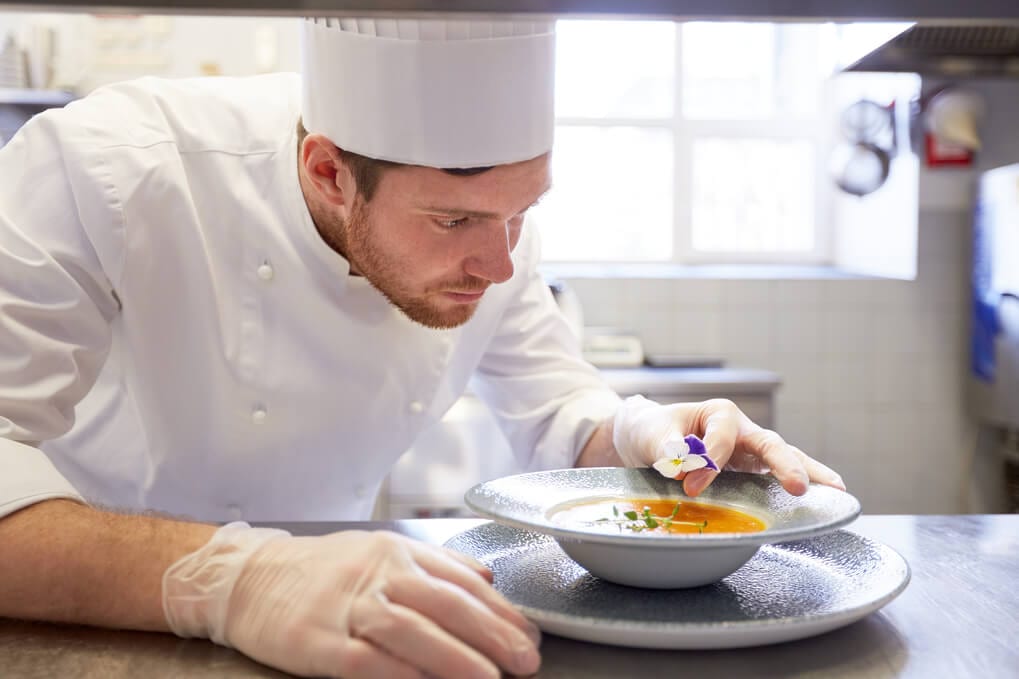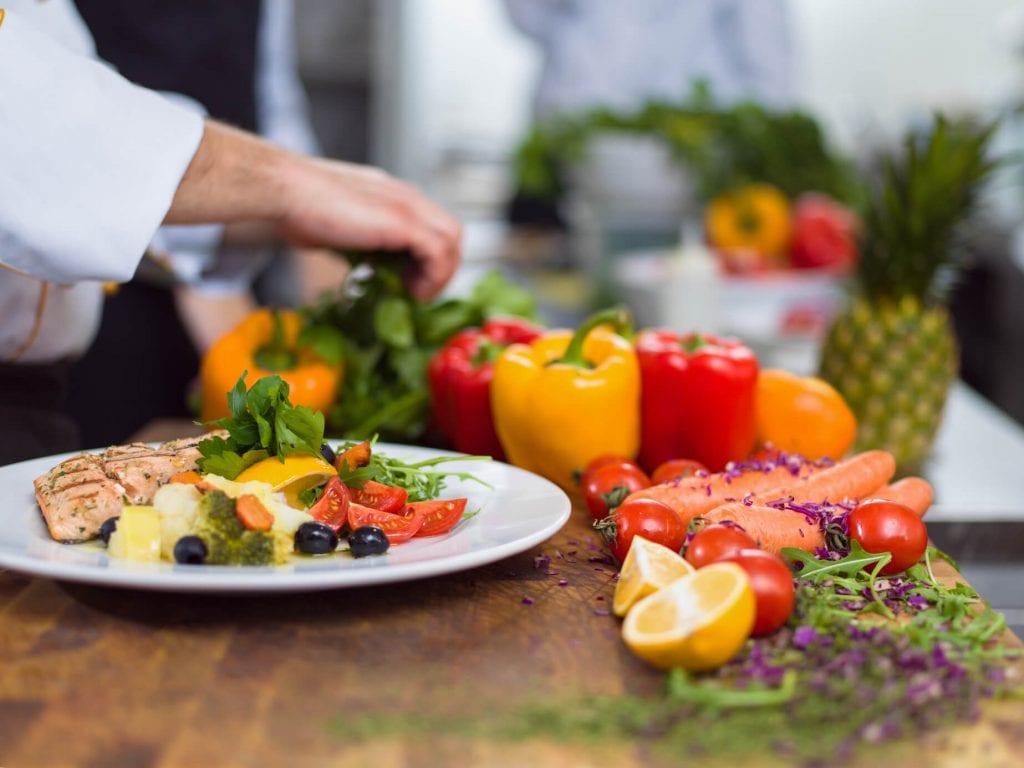Tasty Tax Planning is being served to restaurants by Gavrilov &Co, every day in NYC. We do not often associate the word “tasty,” with “tax planning.” However, it is a sure sign this week’s blog will be dedicated to our restaurant-oriented niche of clients, friends, and readers.
This does not mean that these tax planning tips relate only to the restaurant business. If you are opening any type of business, or if you already own one, you will find elements in this blog that will help you in your tax planning efforts.
We Demystify Our Tax Strategy
Sometimes business owners fall into a simplistic habit. They think taxes simply need to be done on time without a strategy for future months and years. Gavrilov &Co understands that restaurant owners have their daily plates very full.

We know it’s easy to lose the long-range big picture in a plethora of daily details. That’s why we are here to help restaurant owners. With our tax planning skills and expertise in the Tax Code, we can save you money.
Tax Definition
So, to begin at the beginning, let’s give you a basic definition of tax planning:
Tax planning is “an assessment of your financial situation from a tax perspective. The purpose of this “assessment” is to reduce how much money you owe the government. Legally, of course.”
A Menu of Strategies for Restaurants in 2019
The Tax Cuts and Jobs Act brought business owners many key changes in tax paying and planning. With two decades of food industry experience, we at Gavrilov & Co can help you apply those tax changes to your restaurant business. These are changes that are —not just for now, but for years ahead.
Tips that Fit
Below we describe two tasty tips about a couple of tax changes that would fit any eatery, café, diner or fine dining restaurant business. These tips are simply an overview and we hope they pique your interest in the fine art of tax planning. So, for this blog let’s take a quick look at two tax planning opportunities. Thus, these will benefit you as a member of the restaurant industry: Then, next week we will bring you 5 more delicious tax-planning tips that are bound to inspire your money-saving appetite.
Tasty Tax Planning Tip 1. Pass-Through Tax Treatment/Section 199A
We have discussed the Pass-Through Tax break previously. But we definitely feel it is among the best opportunities for saving money through good tax planning.
To put it briefly, the government now gives you a sweet deduction of 20 percent of your “qualified business income” from partnerships, S corporations, and sole proprietorships. “This new deduction will be taken at the owner level. Some limitations do exist, but most restaurants are generally expected to qualify for the full 20 percent deduction.” We are sure, if you look at this tax opportunity, you will like the results of planning for it.
Openings, Opportunities, and Strategies for 199A Deduction:

With this tax planning tip, you subsequently, might be able to reduce the S Corporation owner compensation.
You might ask, “What good will that do?” It could help your restaurant business in a number of ways:
- We could show you how to save on Employment tax
- You might not be receiving as high of a 199A qualified business income deduction as you deserve. We could find you a better deduction.
- Likewise, we might be able to find you a reduction in owner’s federal income tax liability. By the way, owners must still receive reasonable compensation for services performed. (Pay yourself, already.)
- Additionally, “LLC owners may be able to similarly reduce their federal tax liability and increase their qualified business income deduction by receiving preferred returns in lieu of guaranteed payments.”
Don’t worry if you don’t “get it,” we’ll show you how it will work for your restaurant in 2019, 2020, and beyond.
Tasty Tax Planning Tip 2: Depreciation & Section 179 Bonus Depreciation
- The Depreciation and Section 179 Bonus Depreciation bring restaurant owners a delicious additional first-year depreciation of 100 percent.
- However, this is only allowed for certain assets.
- It is only allowed for goods bought September 27, 2017, “and placed in service between September 28, 2017, and December 31, 2022.”
- Caution: There is a Time Limit! Did you know the 100-percent bonus deduction begins phasing down in 2023?
Likewise are you aware you have no limits on the amount of bonus depreciation you can take? And another strategy that restaurants will appreciate is that bonus depreciation can cause a business to have a taxable loss. (Think about it. How’s that for a tasty tax planning tip?)
And here is a vision for your long-range tax-planning: “Taxpayers may elect out of bonus depreciation, which can be a good planning tool to spread-out deductions evenly throughout future years.”
Let’s Take a Look at Property Qualification for that 100% Bonus
Property that will qualify your restaurant business for 100-percent bonus depreciation includes:
- “Tangible property depreciated under modified accelerated cost recovery system (MACRS) that has a recovery period of 20 years or less…” Specifically, Tax planning accountants know this means restaurant equipment, restaurant furniture, and land improvements.
- Be aware that the property can be new or used at the current time. However, under old laws, if you bought used equipment or furniture, it did not qualify for the bonus.
- Gavrilov & Co wants you to be aware that currently Qualified Improvement Property (QIP) does not have a recovery period of 20 years or less. Therefore it does not qualify for 100-percent bonus depreciation. Read on for more details
The QIP Controversy: A Side-Dish
Restaurant owners might be familiar with the controversy surrounding QIP. We’ll give you the basic break-down:
- QIP refers to an improvement to the interior of your restaurant that is made after the building is first placed into service.
- “One of the more significant changes included in tax reform was to combine the two previous 15-year life categories of Qualified Restaurant Property and Qualified Leasehold Improvement Property into one category, QIP.”
- “However, in an inadvertent oversight, tax law never designated QIP as 15-year property nor as a specific category of asset eligible for bonus depreciation. Thus, until they correct it, we must depreciate QIP over 39 years. (Obviously, it is not eligible for bonus depreciation). Most importantly, we can show you how to make this tasty tip help in your tax-planning and money-saving efforts.

Tax Planning Strategy for Section 179
Some exciting changes came down during tax reform for Section 179. The following tax planning list will make it easier for you to strategize your expensive equipment for your restaurant, over time. Significantly, other opportunities also exist.
- First, the new tax laws increased the maximum amount you can expense to $1,000,000.
- However, the new law increased the phase-out threshold to $2,500,000.
- Plus the tax reforms changes qualified real property to include:
- Your QIP (covers interior improvements to existing buildings).
- Many of your expensive exterior improvements to existing buildings. This means you might include a new roof, fire protection, and alarm systems, HVAC and security systems.
Openings, Opportunities, and Strategies for Depreciation and Section 179
In summary, some key factors to save you tax money will include such strategies as:
- It’s time to do some Cost segregation studies on new construction.
- Plus, you can possibly move some of those 39-year life assets to shorter life classifications. As you see from above, the shorter life classifications will let you have that 100 percent bonus. This is the type of strategy your tax professional can help you orchestrate.
- It also could be time to start working on those remodeling plans you’ve been putting off. Certainly, that 100-percent bonus on short-life assets or interior improvements might be available to you.
Further, we can show you that your restaurant business might even have larger deductions due if you can qualify for Section 179 and bonus depreciation.
Our Advice: Don’t Try Restaurant Tax Planning Alone
We should caution you to go over all of this Tasty Tax Tip 2 information with a tax professional. Why? Some restaurants could previously include qualified restaurant property as Section 179 property.

However, the tax reforms now limit them to QIP and limited exterior improvements. Therefore, let the professionals like the ones at Gavrilov & Co Accounting and Tax Services help you.
Importantly, they will evaluate your use of Section 179 versus bonus depreciation. On the other hand, they can show you the advantages of electing out of it.
A 4 Star Recipe for Tasty Tax Planning
Your tax professionals can help you run projections of your taxable income. with both section 179 options. Then we can decide together on a strategy that will give your restaurant the most money-saving advantages in your tax situation.
For example, here’s the strategic question behind tasty tax tip 2: Should we take the bonus depreciation or should we elect out of it?
We can forecast the numbers. And then, you can see the advantages clearly, one way or the other.
Our Terrific Take-Away
The recent tax reforms have blessed business owners with quite a few tax breaks and openings for careful tax planning. However, unless you read the Tax Code for a hobby, you might be unaware of these opportunities.
That’s why we offer you professional tax-planning. We help you find much more than just these basic tasty tips. Within the law, and based upon over two decades of experience in both accounting and the food industry, Gavrilov & Co devises many intricate, customized strategies for tax planning.

